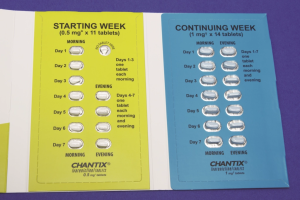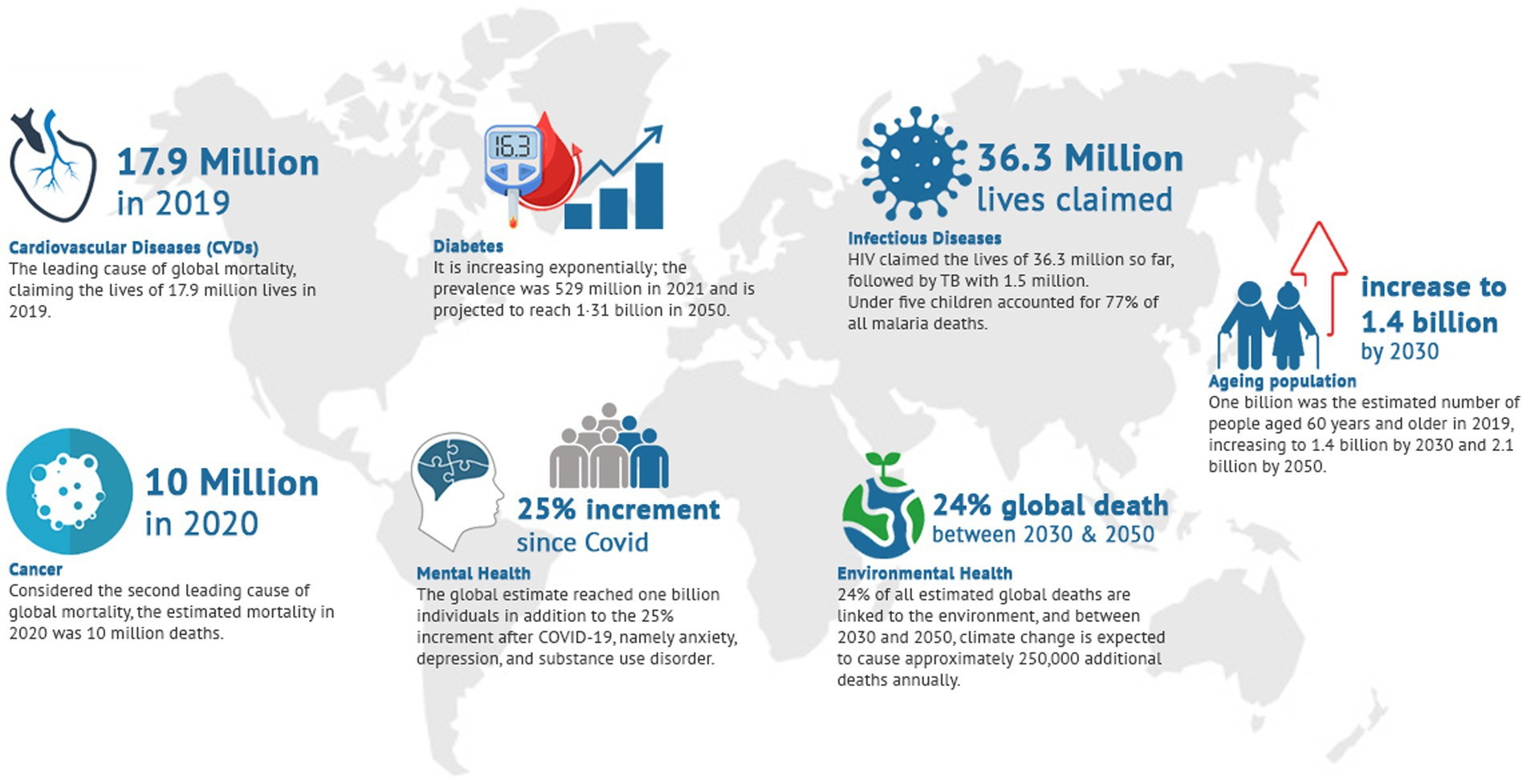Global health challenges continue to shape the landscape of healthcare worldwide, demanding urgent attention and innovative solutions. With the recent shifts in leadership at the U.S. Agency for International Development (USAID), notable figures like Atul Gawande have underscored the importance of USAID in addressing health inequities and strengthening global health infrastructure. The dismantling of essential programs has highlighted the profound impacts of health policy on vulnerable populations, reinforcing the need for strong public health leadership. It is clear that without a united effort to confront these challenges, millions may suffer the consequences of inadequate medical resources and support. As we engage with this pressing issue, understanding the complexities of global health will be key to fostering a healthier future for all.
The obstacles faced in international health and wellness are increasingly pressing, shaping the discussion around healthcare systems and access to medicine globally. Prominent voices like Atul Gawande have drawn attention to how recent political decisions have jeopardized vital support networks essential for overcoming health crises. The interconnectivity of health initiatives underscores the necessity for robust frameworks, emphasizing the significance of entities like USAID in maintaining a responsive health network. As the global community navigates these intricate challenges, public health advocacy and informed policy implementation remain crucial to reversing the adverse trends and ensuring equitable health opportunities. A comprehensive approach is essential in tailoring effective solutions that address the intricate web of health disparities affecting populations worldwide.
The Impact of USAID’s Dismantling on Global Health Challenges
Atul Gawande’s recounting of the dismantling of USAID offers a stark reflection on how such actions create profound global health challenges. The significant reduction in funding and personnel has not only crippled the agency’s ability to respond to health crises but also diminished America’s standing as a global health leader. With over 85% of its programs cut, initiatives that once provided critical support for diseases such as HIV, tuberculosis, and malaria now face existential threats, endangering millions of lives worldwide. The repercussions of these policies illustrate the direct link between health funding policies and global health outcomes.
Furthermore, the loss of experienced staff and essential programs means that rapid responses to outbreaks, such as the recent resurgence of Ebola and other infectious diseases, are severely compromised. In response to these global health challenges, Gawande emphasizes the importance of reinstating the mechanisms that empowered USAID to act effectively from coordinating international health initiatives to scaling up vaccination campaigns that previously saved countless lives. Without immediate action, the void left by these drastic cuts could lead to devastating consequences for global health infrastructure.
The Role of Public Health Leadership in Addressing Crises
Public health leadership is essential when addressing the complexities of health crises, and Gawande’s perspective underscores the importance of having strategic guidance within organizations like USAID. Leaders in public health are tasked not only with day-to-day management but also with innovating solutions that bridge the gap between immediate healthcare needs and long-term health strategies. Gawande’s experience highlights how effective leadership can mobilize resources and expertise, transforming theoretical healthcare models into actionable plans that directly impact community health.
As other countries rise to take the reins in global health initiatives, demonstrating robust public health leadership will become increasingly critical for ensuring that initiatives are not only created but also executed effectively. The ability to follow through with programs—what Gawande terms ‘technical assistance’—is crucial. This involves ongoing training and resource allocation that ensure that health interventions not only reach their targets but also achieve meaningful improvements in health outcomes. Leadership in public health must inspire confidence and rally collective action, ensuring that even in times of adversity, communities can depend on resilient health systems.
The Importance of Rebuilding Global Health Infrastructure
Rebuilding global health infrastructure is essential in response to the severe blows dealt by policy changes at USAID. As Gawande notes, the enormous strides made by the agency in combating maternal and childhood mortality, among other public health challenges, are at risk due to staffing cuts and program terminations. A well-structured health infrastructure is fundamental not only for treating illnesses but for preventing them in the first place. The need for facilities capable of providing swift and effective responses to health emergencies cannot be overstated.
In this light, investing in global health infrastructure should be recognized as a pivotal priority. Modern health crises demand systems that are interconnected, ensuring that information flows seamlessly and that resources can be mobilized rapidly across borders. Lessons learned from past successes show that comprehensive health networks—like those established by USAID—can significantly reduce response times for outbreaks. In this era of global interdependence, prioritizing the restoration and enhancement of such infrastructure is vital for protecting public health globally.
The Consequences of Health Policy Changes
Health policy changes have far-reaching consequences, as highlighted by Gawande’s experience at USAID. The abrupt shifts in funding and focus can disrupt ongoing programs that serve millions, affecting not only healthcare delivery but also health outcomes and equity. For instance, the termination of global health assistance can exacerbate existing health disparities, particularly in low-income countries that heavily rely on external funding for essential services. As a leader, Gawande understands the tragic implications of these policy shifts for those who depend on the healthcare provided by USAID-funded initiatives.
Every health policy change must undergo rigorous scrutiny, considering both the immediate effects and long-term repercussions on health infrastructure. Policies that prioritize short-term gains at the expense of sustainable health support can lead to a collapse of services, triggering a healthcare crisis. It is imperative to advocate for health policies that are committed to addressing not only the symptoms of health issues but also the systemic factors underlying them, ensuring a holistic approach to public health challenges.
The Future of Global Health Without Strong U.S. Leadership
Gawande’s reflections on the shifting dynamics of global health leadership raise concerns about the future of health initiatives in the absence of strong U.S. involvement. As he notes, other countries and organizations may fill the void left by the U.S. if it steps back from global health efforts. This shift in leadership could reshape the landscape of international health collaboration, potentially leading to fragmented and less coordinated responses to global health challenges. Without vigilant and committed U.S. engagement, essential programs that have previously delivered significant health advancements may face disintegration.
However, while there are uncertainties regarding America’s role, there is also a potential for new leaders to emerge within various communities, including those in Massachusetts and other states. Encouraging these leaders is paramount, as their efforts could foster innovation in public health strategies. The future landscape may require enhanced collaboration among non-governmental organizations, academic institutions, and international partners to fill the leadership gap and ensure that vital health services continue to reach those most in need.
Learning from Past Achievements in Global Health
It is crucial to learn from past successes in global health, particularly from the significant achievements of agencies like USAID during its peak operational phases. Gawande recalls how USAID’s strategic interventions reduced emergency response times for epidemics from weeks to mere days, a testament to effective public health planning and execution. Reflecting on these achievements can provide valuable insights on how to develop resilient health systems that can adapt to and overcome new challenges, ensuring better preparedness for future health crises.
Moreover, understanding what worked in the past provides a roadmap for rebuilding and strengthening global health initiatives. By analyzing successful programs that addressed maternal and child mortality or that mobilized a comprehensive response to infectious diseases such as malaria and HIV, stakeholders can devise strategies that reapply and adapt these lessons to modern contexts. Gawande’s observations can serve as a calling for renewed commitment to achieving high standards in global health through collaboration and innovation.
The Call to Action for Future Generations
Gawande’s message transcends a mere analysis of current health policy; it is a clarion call for future generations of health professionals and advocates. By emphasizing the necessity for commitment to the fields of science and medicine, he inspires students and faculty to pursue careers fortified by a sense of responsibility to tackle global health challenges. The next generation of public health leaders must be equipped not just with knowledge but also with a passionate dedication to making impactful changes that address health disparities worldwide.
In responding to the issues at hand, Gawande encourages individuals to harness their expertise for the betterment of global health. Each person has a role in advocating for a health system that is not just reactive but proactive in improving lives through innovation and science. This ethos can drive collaborative efforts that directly address health challenges and build a more equitable and sustainable health future for all.
Revitalizing Research Funding for Health Improvements
Gawande’s remarks about the halted funding for research initiatives highlight a critical issue in the fight for global health improvement. The cuts to organizations such as the National Institutes of Health and collaborative research centers drastically limit innovation and the development of new treatment protocols. As research funding diminishes, critical breakthroughs that could prevent disease or improve health outcomes become jeopardized, creating a backlog of potential advancements that may never materialize.
Revitalizing research funding is essential for driving progress in addressing chronic conditions and infectious diseases alike. Allocating adequate resources towards health-related research empowers scientists and healthcare professionals to create impactful solutions and inform effective health policies. Emphasizing the importance of sustaining and increasing research investments can pave the way for an era of significant health improvements that not only have national implications but also bolster global health initiatives.
The Role of Collaboration in Strengthening Health Systems
Collaboration emerges as a vital ingredient in strengthening health systems, making Gawande’s insights particularly relevant in today’s interconnected world. As the landscape of global health evolves, the establishment of partnerships among various actors—governments, NGOs, private sectors, and international agencies—becomes increasingly necessary. Such collaboration can help pool resources, knowledge, and expertise, ultimately contributing to a unified response to public health crises and ensuring that health interventions are effectively implemented.
Moreover, successful collaborations foster innovation by leveraging the strengths of different organizations and disciplines. By working together, stakeholders can drive forward initiatives that reflect the needs of communities while adapting to emerging health challenges. In light of USAID’s experiences under Gawande’s leadership, there is an opportunity to expand these collaborative frameworks, enhancing resilience and improving overall health outcomes both domestically and globally.
Frequently Asked Questions
What are the implications of global health challenges on public health leadership?
Global health challenges significantly impact public health leadership by requiring adaptable and knowledgeable leaders capable of navigating complex health issues across various cultures and systems. Strong public health leadership is essential to address the intricacies of global health, including the management of resources and coordination of responses to pandemics, thereby strengthening the overall global health infrastructure.
How does USAID contribute to addressing global health challenges?
USAID plays a critical role in addressing global health challenges by providing funding, resources, and strategic support to health programs worldwide. Its initiatives have historically improved health outcomes in areas such as maternal and child health, infectious diseases, and overall public health infrastructure, thus enhancing the ability of nations to respond effectively to health crises.
What has been the impact of health policy changes on global health infrastructure?
Health policy changes, particularly those influenced by shifts in government priorities, can substantially weaken global health infrastructure. For example, budget cuts or program cancellations at agencies like USAID may lead to decreased monitoring of diseases, reduced funding for vital health initiatives, and ultimately inferior health outcomes in vulnerable populations across the globe.
Why is the importance of USAID vital for tackling global health challenges?
The importance of USAID is vital for tackling global health challenges as it acts as a major source of international health funding and technical assistance. Through its investments and partnerships, USAID helps to improve healthcare delivery systems, enhance disease surveillance, and increase access to preventive measures, thereby making significant strides in alleviating global health burdens.
What are some examples of the impacts of health policy on global health challenges?
Health policy can directly affect global health challenges in various ways. For instance, policies that cut funding for international health programs can lead to increased disease transmission rates, higher maternal and child mortality, and reduced efforts in combating epidemics like HIV or malaria, demonstrating how critical supportive policies are for effective public health responses.
How does Atul Gawande view the future of global health leadership?
Atul Gawande expresses both concern and hope for the future of global health leadership. While he acknowledges that the U.S. may falter in taking a leadership role, he believes that other countries and innovative local leaders will emerge to fill the gap, emphasizing the necessity for continuous engagement and commitment to improving global health outcomes.
What strategies can strengthen global health infrastructure amidst challenges?
Strengthening global health infrastructure amidst challenges requires prioritizing long-term investments in health systems, enhancing collaborations between countries, expanding access to healthcare, and improving data collection and response mechanisms. Additionally, fostering public health leadership that emphasizes resilience and adaptability is crucial for responding effectively to emerging global health threats.
| Key Point | Description |
|---|---|
| Impact of USAID Cuts | The dismantling of USAID has led to devastating consequences for global health, affecting millions and diminishing U.S. leadership in international health efforts. |
| Gawande’s Role | Atul Gawande served as the head of USAID’s Bureau for Global Health and emphasized the importance of restoring the health infrastructure. |
| Effect on Research | Federal funding cuts are threatening health-related research programs, including significant work at Harvard and Brigham and Women’s Hospital. |
| Global Health Programs | USAID had various successful programs that significantly improved health outcomes, including maternal health and disease prevention. |
| Future of Global Health | Despite current challenges, Gawande expressed hope for the future and emphasized the ongoing need for expertise in global health. |
Summary
Global health challenges have been exacerbated by the recent cuts to USAID, as highlighted by Atul Gawande. The dismantling of vital health programs poses significant risks to millions worldwide. It is essential to recognize the importance of maintaining and restoring health infrastructure to continue the fight against diseases and support vulnerable populations. While there is uncertainty about America’s role in global health leadership, the commitment of individuals and organizations at all levels remains crucial to addressing these pressing issues.









